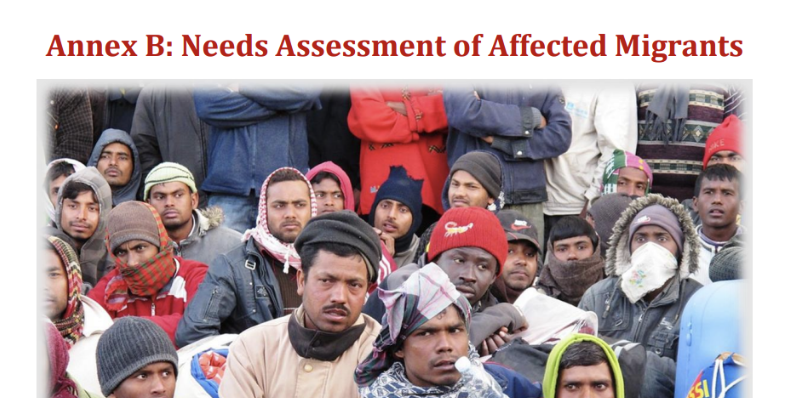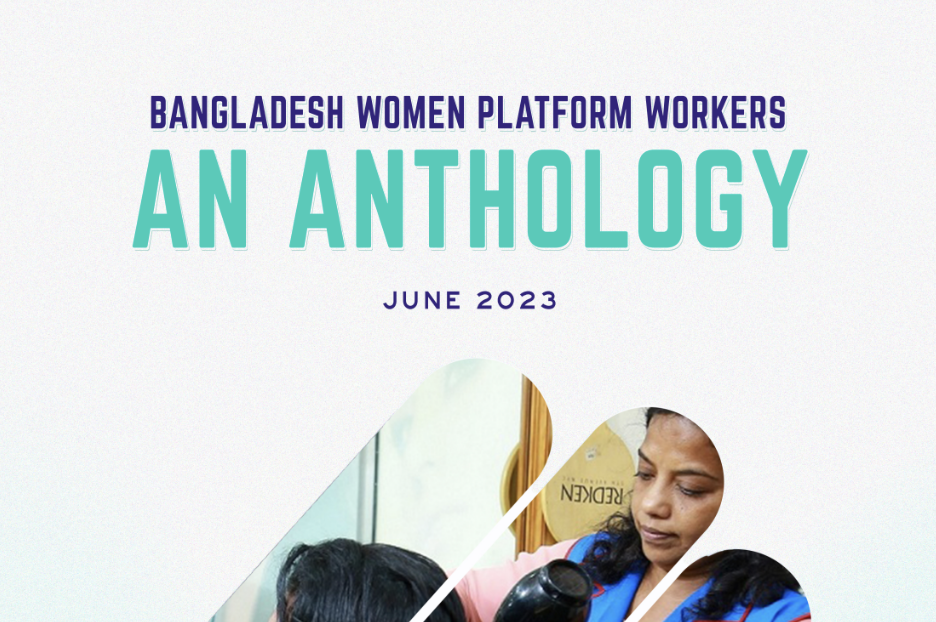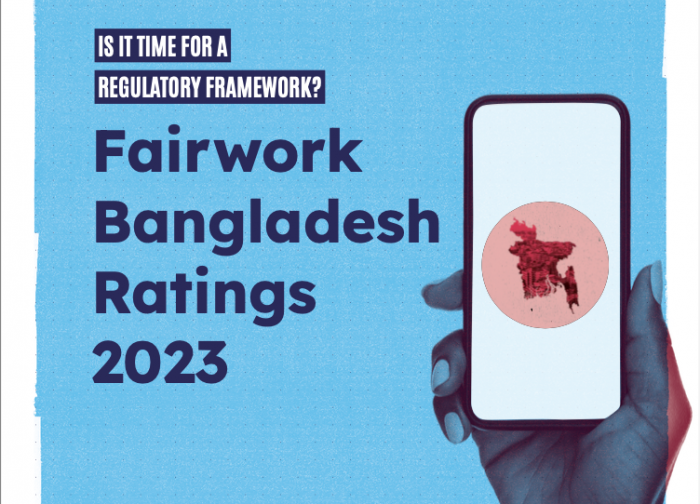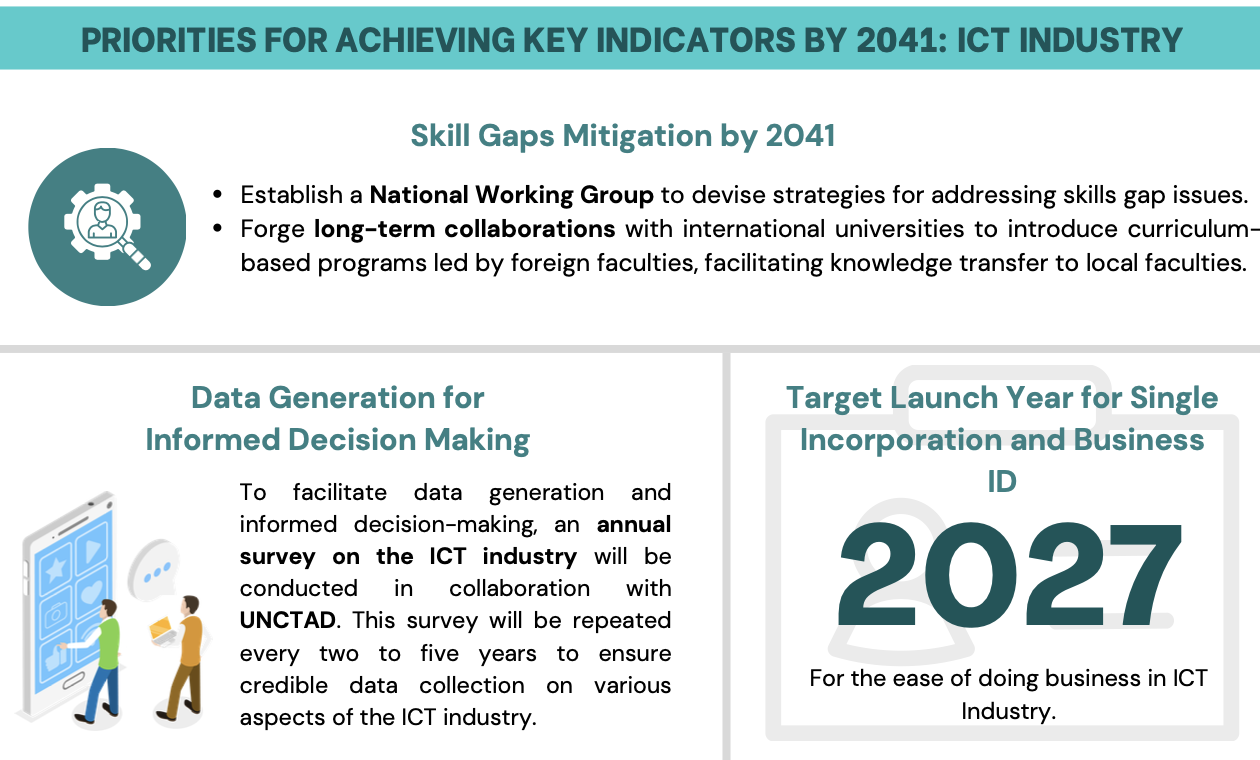To identify and assess the current and future needs of returnee migrants in Bangladesh, classifying these needs (financial, skills training, service-related) and understanding their variations across gender, reasons for return, and future intentions, to inform poverty reduction and improved living conditions for this vulnerable group.
This annex shows the findings from the field on the current and future needs of the returnee migrants. These needs are broadly classified into three groups:
- Financial needs
- Needs for Technical, Vocational and Entrepreneurial Skills Training and Accreditation (certification)
- Service-related needs. The services include better access to information and flight and travel related needs.
Project timeline: June 2020 – August 2020
Partners:
- International Labour Organization (ILO)
- Ministry of Expatriates’ Welfare and Overseas Employment
Project objective:
DataSense at iSocial conducted mapping and needs assessment of the challenges faced by returnee migrant workers and their families impacted by the COVID-19 outbreak with key focus on both strategy of recovery, and addressing the immediate needs so that the sector can transform and embrace the challenges with sustainable coping mechanism to become an upper-middle-income country by 2031, as laid out in the 8th Five-Year Plan of Bangladesh. DataSense produced 3 reports for presenting to the Ministry of Expatriate Welfare and Overseas Employment (MOEWOE):
- Post-Pandemic Strategic Roadmap for the Labour Migration Sector
- Report on Mapping of COVID-19 Affected Migrants
- Report on Needs Assessment of Affected Migrants. The report highlighted needs and gaps for job creation and entrepreneurship development
Project outcome:
The study successfully assessed the multifaceted needs of returnee migrants, categorizing them into financial, skills training, and service-related requirements, while also identifying influencing factors.
- A significant majority of returnee migrants expressed a need for loans (85%), followed by interest in technical (33%) and entrepreneurial skills training (34%).
- Access to information (89%) and flight/travel related help (79%) were identified as critical service needs.
- Financial needs were higher among male migrants (85.4%) and those who lost their jobs (90.6%). A strong correlation was found between loan need and existing household loans/savings.
- 70% of respondents intend to start a business, preferring financing from acquaintances (44%) and NGOs (39%).
- Skills training interest showed a positive correlation with higher education levels and prior training. Female migrants showed a preference for home assistance/hospitality training (39%), while males preferred electrical/electronics training (36%).
- Returnees due to job loss had a higher interest in retraining (40%).
- Entrepreneurial training was particularly desired by those intending to stay in Bangladesh (70% higher need) and those with no prior business experience (two times more likely).
- Service needs for going abroad were high (79%), with financial assistance (67%) and visa/recruitment agency assistance (41%) being key. Only 11% knew where to find information and support, with no female respondents reporting such knowledge.
Locations the project served: The project’s scope covered Bangladesh, focusing on understanding the needs of returnee migrants across various demographic and situational categories within the country.
Key Needs Overview
| Need Category | % of Migrants Reporting Need (Overall Sample) |
| Loan | 85% |
| Technical Training | 33% |
| Entrepreneurial Training | 34% |
| Access to Information | 89% |
| Flight & Travel Related Help | 79% |
Loan Need by Migrant Characteristics
| Characteristic | Category | % Reporting Loan Need |
| Gender | Male | 85.4% |
| Female | 78.6% | |
| Reason for Return | Job Loss | 90.6% |
| On Leave | 80.7% | |
| Intention | Intend to Stay | 88% |
| Intend to Go Abroad | 84% | |
| Not Sure | 92% |
Skills Training Preference by Gender
| Training Type | Female Preference (%) | Male Preference (%) |
| Home Assistance / Hospitality | 39% | – |
| Electrical Connection / Electronics | – | 36% |
Impact:
The study’s findings provide a robust evidence base for designing targeted and effective interventions, contributing significantly to policy development and program implementation for returnee migrants.
- Granular Understanding of Needs: The project delivered a nuanced, data-driven understanding of the diverse and complex needs of returnee migrants, distinguishing requirements based on gender, reasons for return, and future intentions.
- Informed Policy and Program Design: The insights into specific needs (e.g., high demand for loans, particular training types, information gaps) and influencing factors enable policymakers and support organizations to develop more precise and impactful financial, skills development, and reintegration programs.
- Targeted Support Mechanisms: By highlighting specific vulnerabilities (e.g., higher loan needs for those who lost jobs, varying training preferences by gender and education) and barriers (e.g., lack of information sources), the project facilitates the creation of tailored support mechanisms that address the unique challenges of different migrant segments.
- Enhanced Reintegration Efforts: The findings on interest in starting businesses and the need for entrepreneurial training provide critical guidance for economic reintegration strategies, fostering self-employment opportunities.
- Advocacy for Essential Services: The identified high need for information and flight/travel related assistance underscores critical service gaps, providing a strong basis for advocacy to improve support infrastructure for migrants seeking to return abroad or needing assistance with legal/travel aspects. 2020_Report on Needs Assessment of COVID-19 Affected Migrants_ILO




